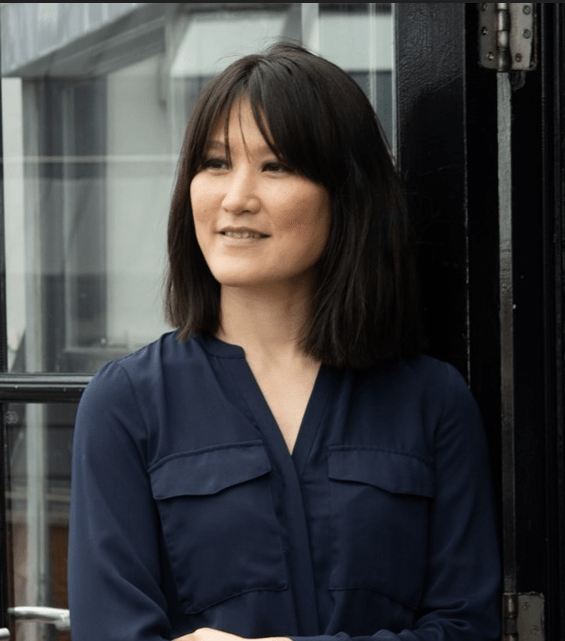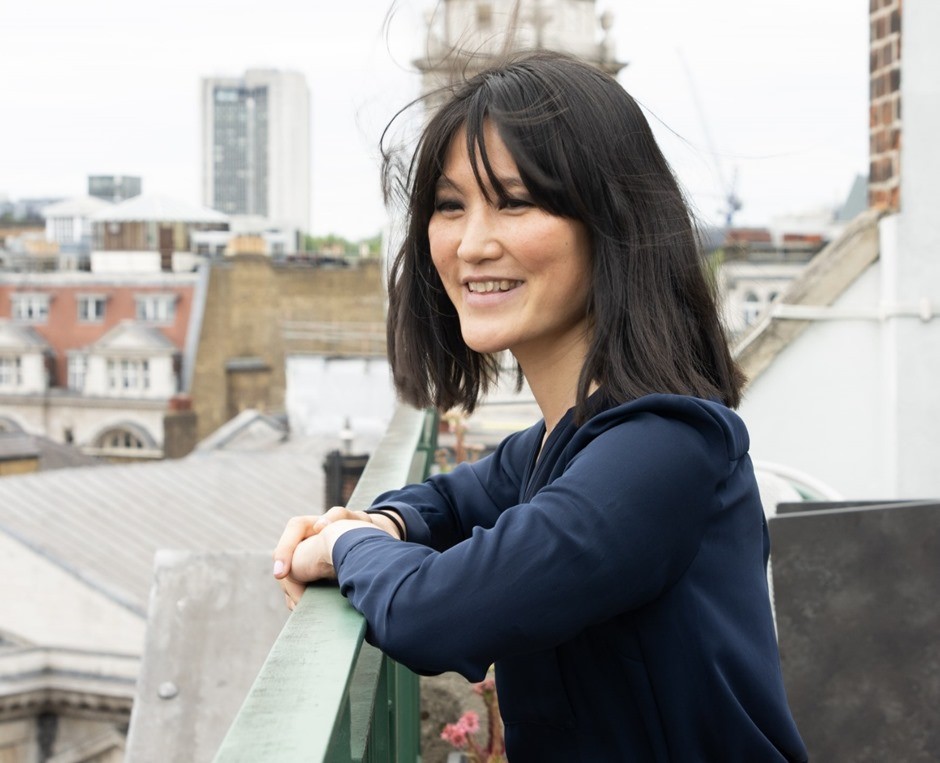
Cultural Fusion: A Journey of Resilience and Self-Discovery
In this enlightening feature of Global Woman Magazine, we spotlight Sinda, whose life journey epitomizes the resilience and richness of a multicultural upbringing. Raised in Sweden with roots in Hong Kong and Vietnam, Sinda’s narrative transcends the typical tale of cultural integration. Her experiences range from grappling with identity crises and bullying during her youth, to finding solace and strength in Judo, and eventually embarking on a transformative journey abroad. Now a Mindset Coach, Rapid Transformational Therapist and NLP Practitioner, Sinda’s story is a testament to the power of perseverance, self-discovery, and the relentless pursuit of personal growth amidst the complexities of a diverse cultural landscape.
Sinda, your multicultural background is quite unique. How has the blend of Hong Kong and Vietnamese cultures within a Swedish upbringing influenced your view of the world?
What a great question!
The view of the world was very much to work hard; that’s what life was about. Study hard, get a great job, and work up the career ladder. This was how I was raised, which is very much known as the rat race. I don’t blame my parents, because this was how they were raised. My parents were working the majority of the time, and they were only off work three days a year. They were running a Chinese restaurant, and every summer holiday during my time at school, my siblings and I had to help my parents out while my friends went on vacation with their families. I didn’t see much of the “world” as a child, only the small city where I grew up, which was very much the world to me.
It wasn’t until I moved abroad to Scotland to study law at the university that my view of the world changed in terms of life. It wasn’t just about studying hard to get a degree or a well-paid job. People were interested in “where I was originally from,” not necessarily where I grew up, and I started to experience an identity crisis and was completely lost as a person.
Dealing with bullying is a significant challenge, especially for a young person. What advice would you give to young girls facing similar struggles about finding their own identity amid adversity?
I always told the teachers when I got bullied, and they never took it seriously, so it was never “resolved,” so I started to blame myself. The advice I am giving is based on my own experience and what I wish someone had told me back then.
The first advice would be to speak to someone you trust (friends or a family member) and make sure you are being heard. I internalised a lot of my internal struggles which were built up over the years.
Secondly, do something you enjoy! Judo kept me laser focused, and I got really good at it and started to compete successfully.
Thirdly, surround yourself with the right people who stand up for you, who believe in you, and who have the same interests as you—the people who bring the best out of you!
The fourth is to think about what you want to hear or need to hear to stay focused and believe in yourself that you are enough and loved. Write them down as affirmations, and look into yourself in the mirror while you say them out loud. My brother always told me, “You can always do the things you want as long as you believe in yourself.” It has stayed with me forever.
What role did Judo play in your personal development, and how did claiming third place in the Swedish National Championship boost your self-esteem during your youth?
Judo, in general, has taught me some important life skills, like resilience and a growth mindset. I broke my collarbone and fractured my elbow during competitions, and my parents told me “enough” and I wasn’t allowed to compete anymore.
They did it because they got hurt when I injured myself, and I understood it as they stopped me from doing something I loved. So, I had to have some difficult arguments with them in order to continue to compete again.
I remember when I was competing in Germany and my competitor went up to me to bully me, and it brought up some memories from the past when I got bullied. I told myself that she just wanted to mess with my head, and I had to stay focused. I won the competition, and it was actually the most important Judo competition in my life, way bigger than coming in third in the Swedish National Championship.
Judo competitions allowed me to reflect on my own training and train with people who were better than myself. I started to define my own and work on my competitive advantage by analysing my competitors, and due to all this, I was very successful at judo. It was like my superpower.
Making the decision to study abroad at 16 is a bold one. Can you describe the aspirations that drove you and how this decision has impacted your trajectory in life and business?
The pain from working in my parents’ restaurant drove me to make the decision to study abroad. I didn’t even think twice, and I was laser-focused and very determined. I believe that we experience things in life that make us stronger, and I use every “experience” as “evidence” to say, “I can do this.” After studying abroad at the age of 16, I discovered my passion was travelling, and since then it has kicked off. I called myself a globetrotter and started to create a list of countries I wanted to travel to, and I wasn’t afraid to do it on my own. This made my comfort zone bigger, and it became very normal to me, while for others it may be scary.
Pain drove the bold decision to study abroad at a young age; now, in adulthood, it is easier to stay in my comfort zone. I made a promise to myself to not stay in my comfort zone too long, and when there is something I want to do in terms of self-growth or business and the action makes me feel uncomfortable, it’s a sign that I should probably do it.
Falling in love can indeed turn life upside down. Could you talk about how this experience revealed a different side of you, and what it taught you about yourself?
It was my first big love, so when it ended, it was extremely hard. When I was reflecting back on the relationship from a helicopter view, my life was all about the relationship. I forgot about my hobbies and my goals, and I neglected my friends.
Before the relationship, I was very independent, but the relationship made me codependent, and I came across as a needy person. When the relationship ended, the whole world fell on my shoulders, and I locked myself into a room and wanted to sleep all the time. Everything was very difficult.
This experience has taught me that when I start to “lose myself,” like ignoring my own needs and desires in any kind of relationship (friendships too), it’s a red flag and a sign to leave.
Transitioning to become an NLP Practitioner and Mindset Coach is quite a shift. What sparked this transformation, and how did this new understanding of perspective change your approach to your personal challenges?
A friend of mine took me to a taster day to explore what coaching is. That’s where I got introduced to coaching and neuro-linguistic programming (NLP). I always had this belief that “this is how I am” and had no clue that coaching can help you to gain a different perspective. I was fascinated by how thoughts drive our behaviours, and how questions can challenge our own thoughts. It was so powerful to witness and to learn new tools.
It took me years to get enrolled due to my own limited beliefs. When money was involved, I was always raised to find an alternative way (known as finding a cheaper way) and was told by people around me to read books instead. I knew within me that this was what I needed (to get enrolled), despite what everyone said. After all these learnings, I am very protective of my energy and what I am telling myself. If something triggers me and makes me upset, rather than being upset about it, I explore the reason why I got upset about it in the first place. From then I started to gain more self-empathy and understanding of why I am reacting in certain ways. This is when my internal journey started.
Coaching people from various walks of life must be an enriching experience. Could you share one particularly moving or transformative coaching experience that stands out to you?
The best thing about coaching is that every person has a unique story. I have a passion to coach people who are experiencing low self-esteem, confidence, or imposter syndrome, because I have experienced this myself for several years. This client stood out to me because I could recognise myself in her. I asked the client to complete a character strength test which would identify her strengths and weaknesses. In the session, I coached her about the results and how she can stretch and develop her strengths, because a “strength” is like a muscle that we can practise.
The client wasn’t happy with the results and mentioned that the test is not accurate. Obviously, this is interesting, and I started to explore the beliefs behind it. I find coaching very powerful, as we can challenge and interrupt the client’s regular thinking pattern. It’s even more powerful when the client gets their “aha” moment. In this case, the client discovered that she was still living in the past and hadn’t acknowledged the new person she had become.
You mentioned that problems are guidelines, not stop lines. Can you expand on this philosophy and provide an example of how you’ve applied this in your coaching practices?
As a child, when my parents spoke about their problems, I saw how worried and anxious they were, and it didn’t make me happy at all. I couldn’t do anything for them or take their worries away. It kind of taught me that problems are not good; they trigger certain emotions, which I didn’t like to deal with; it was more like not knowing how to deal with the emotions. I started to learn that problems are like stop signs; you get stuck, and you learn how to live with the problem.
It wasn’t until I became an NLP practitioner and mindset coach that I realised problems are great as they help us to grow as people by changing our perspective of things. For example, I was given the opportunity to be on a radio show, which is a fantastic and once-in-a-lifetime experience. I started to look for excuses not to do it because I had never done it before or because x, y, and z were not ready yet. I started to go through each bullet point from “the excuse list” and created a list of actions and small achievable goals on a weekly basis, and slowly it started to feel better. So the excuse list was more like a guide to break things down into smaller steps in order to give myself permission to say that it’s OK to do the radio show.
Becoming a Hypnotherapist and Rapid Transformational Therapist seems to have been pivotal for you. What enlightening moment did you experience during your training that greatly influenced your therapeutic approach?
Yes, Rapid Transformational Therapy (RTT) has been a significant life-changing journey for me. It has helped me to understand how certain life experiences from my childhood caused problems I have experienced in adulthood. The enlightening moment was when I understood the root cause of it. It’s fascinating to know that we don’t have to live in the past, and we can make a change. The experience gave me more clarity and helped me understand how important it is to be kind to myself.
Being kind to yourself—that’s the greatest gift you can give yourself.
Reflecting on your inner journey, what would you say is the most common issue people get stuck on from their past, and how do you typically guide them past these roadblocks?
When I was reflecting on my inner journey over the years, I discovered that I had the belief that “I wasn’t good enough,” which is tied back to the mentality of “it’s my fault,” which is a fixed mindset. Throughout the RTT training, I discovered the common issue people get stuck on from their past is usually the belief that “I am not good enough, I am not lovable, or it’s not available to me.” That’s because their inner child isn’t healed yet, and nobody is born with the belief, “I’m not good enough.”
With RTT, we would explore the link to the beliefs, and they are usually tied to events from the past that made them feel unlovable or not good enough.
When it comes to coaching, the belief may not be as clear, as it’s not something clients would say. They may say things like “I’m not good at x, y, and z,” so we have to break their thinking pattern by asking questions like “according to who?” or “What makes you think you are not good at x, y, and z?” These are powerful questions that make the clients stop and think. We don’t tend to challenge our own thinking or our beliefs when we keep them to ourselves, so it’s easy to accept them even if the beliefs are not good for us.

Our Journey in 12 Months:
Our Journey in 12 Months – Global Woman Magazine
5 Things That Show Money is Not Evil:
5 Things to Show That Money Is Not Evil – Global Woman Magazine
Global Man Magazine Page:
Global Woman, Global Man: Socials:
Global Woman Magazine (@global_woman.magazine) • Instagram photos and videos





